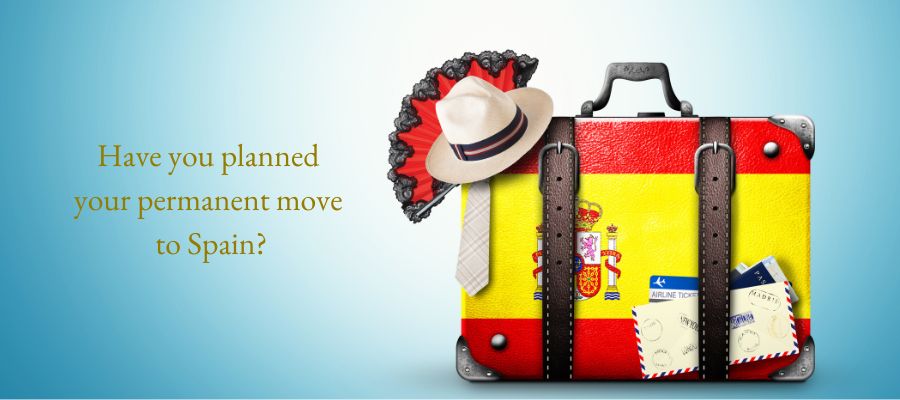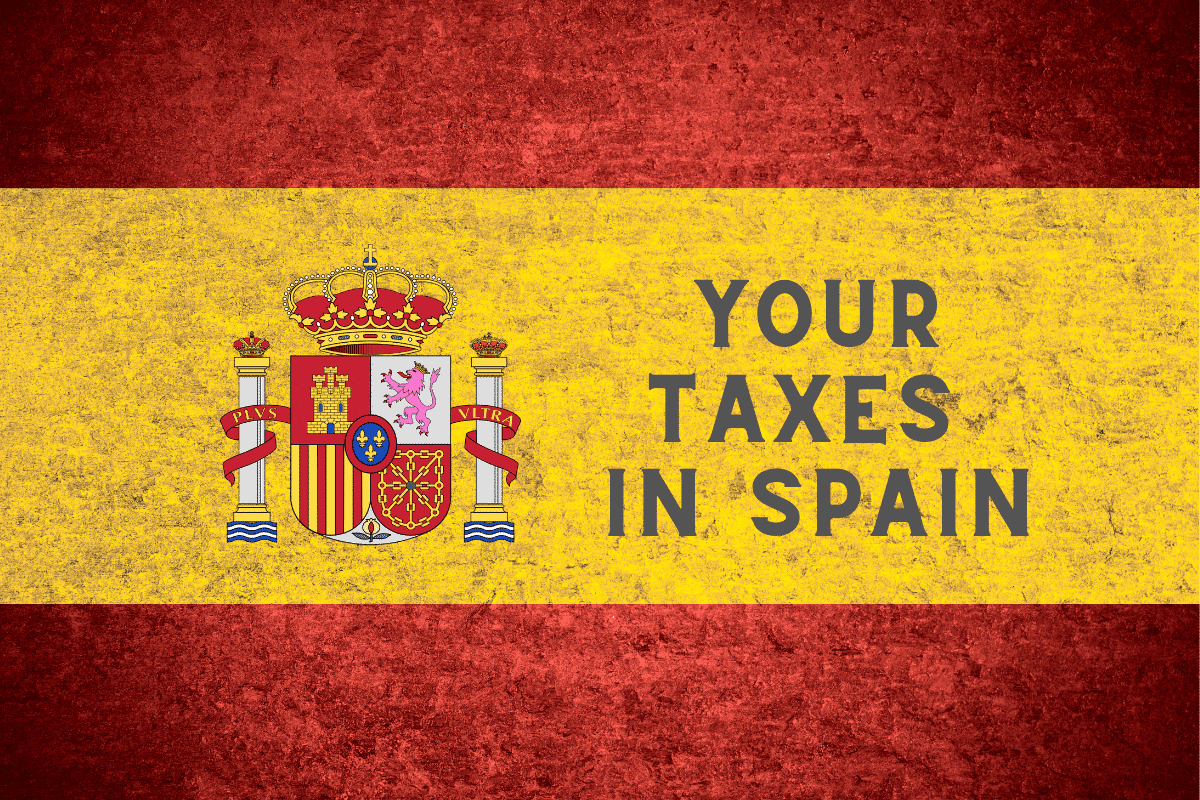Just recently I returned “home” to continue my work under the wing of The Spectrum IFA Group. Two years ago I moved away thinking I could expand the range of services to offer my clients, but sometimes the grass isn’t greener. However, leaving one base for another also creates time for reflection and, sometimes, realisation that where you were was rather good.
Do I need a financial adviser?
By Susan Worthington
This article is published on: 1st October 2023

Change is always happening around us, but for some it can be unsettling. I am fortunate in that all my clients and contacts have been happy to stay with me on my journey.
It made me appreciate that a client’s commitment to one adviser for the duration of their financial arrangements is fundamental to developing a strong relationship and achieving successful outcomes. It’s what an adviser can help them with that matters, and supporting those requirements over the long-term creates a unique bond. Matching the actual advice and arrangements to a client’s needs should be the highest priority for any adviser.
So what can an adviser provide:
• Helps maintain perspective (and calm) during stock market turbulence. This is particularly relevant at the time of writing!
• Able to explain and problem solve when something goes wrong.
• They provide more accurate news and updates from the real experts, steering clear of the media hype and scaremongering that is everywhere.
• Recommend tax efficient arrangements geared to your lifetime and also very importantly, after it, for your family.
• Have access to investment fund experts who often fare better than self-selected choices.
• Keep you on track as your circumstances change. Nothing ever stays the same, part of life’s rich pattern, so having a hand to hold you through that change can be comforting and supportive.
• Liaise with your tax or legal advisers to ensure your overall interests are protected.
Not everyone chooses to work with a financial adviser. Some people can’t find one they can work with or trust or just simply prefer to manage their own affairs. Many don’t do anything at all.
It made me check some UK statistics. Did you know that:
• 39% of adults (20.3 million) don’t feel confident managing their own money.
• 11.5 million have less than £100 in savings.
• nearly nine million people are in serious debt, and only around a third receive help.
• Brits who took professional financial advice between 2001 and 2006 enjoyed an average increase in their assets of nearly £48,000 after 10 years, compared to those who took no advice.
• Most millionaires likely use some type of financial adviser to grow and protect their wealth.
According to a recent report from Prudential, more than half – 53% – of UK adults say that financial problems and changed circumstances over the last 12 months have caused them to seek financial advice. Of this figure, 33% have already sought financial advice, whilst the remaining 20% are planning to do so.
Most people will benefit from the knowledge and experience of a professional financial adviser, especially if they have a variety of assets. When deciding between working with a financial adviser or doing it yourself, you just need to weigh the benefits against what you could be missing out on. Just a thought…….!
Top tips for expat finances – Spain
By Chris Burke
This article is published on: 18th September 2023

Well, thank goodness that heatwave is over and I can venture out during daylight hours again! September and October for me are the absolute best times of the year here in Spain, great comfortable temperatures, less people (tourists) around and the sea has been warmed up over the summer.
This month’s Top Tips are as follows:
- 7P tax exemption rule – do you travel outside of Spain at least two weeks a month?
- Property price forecast UK & Spain for the end of 2023/2024
- Why should I speak to a Financial Adviser (a good one, that is 😊) in one sentence?
- 90’s nostalgia advert
7P Tax Rule
One of the most common questions people ask me is ‘As I am not on the Beckham Law, how can I reduce my taxes?’ One of the first questions I ask them is ‘how much time do you travel for work outside of Spain?’ If you travel for 2 weeks or more every month, in simple terms you might not to have to pay tax for those days you are away – a significant saving and you may have a tax exemption of up to €60,100 per year.
The key qualification factors are as follows:
- You must be a Spanish tax resident
- The company you are performing the work for must not be Spanish, must be based abroad and not a Spanish entity (but you can be employed by a Spanish company and have been instructed to carry out this work outside of Spain)
- You must physically be outside of Spain when conducting this work
- The country you are working in must have a similar tax system to Spain/have a double tax treaty
If you adhere to all these points then this tax exemption could be applicable for you – please ensure you take professional advice.

Property price forecast for the UK & Spain, for the end of 2023/2024
Property is, in my opinion, a great asset to hold and one that every investment portfolio should have. Just like ‘non-property’ investments, the value can go up and down. It can be more ‘hassle’ to manage taking into account tenants, taxes, issues with the property etc. but long term it has usually been a good investment. Governments are starting to make being a landlord a more expensive venture in the UK now – let’s see if Spain follows suit.
Since covid we have seen that property prices have generally boomed. However, the last 12 months or so things have started to change. New Zealand is in the midst of a property crash, down approximately 18% in a year. Canada is also in a property ‘recession’, down by approximately 15% year on year (most of you probably won’t have heard about these – the news outlets tell you what they want you to hear). Property, just like investment portfolios, does not only go one way, as in up. This year, for the first time in a long time (probably 15 years), I have been advising some clients to sell their UK property investments if they don’t think they will go back there, and it makes sense from a tax perspective. If you are living outside of the UK, at some point you are going to have a decent sized taxable gain/event on that property, (more so in Spain) and even if it is inherited by someone else, it’s unlikely that even then the tax will be avoided/mitigated.
In the UK, properties valued at up to around £600,000 are ‘still moving’, estate agents tell me. Many people over the next year or two will be coming off fixed rate mortgages they took out during covid (when interest rates were low) and their new mortgage repayments will at least double under current rates. They will have the choice to either swallow this extra monthly cost or sell (some will have no choice). Taking all of this into account, forecasters are predicting the UK property market will decline – it is already stumbling at best, with a slow down in sales and asking prices not being achieved generally.
In Spain things are slightly different, and one of the driving factors is that you can fix your mortgage rate for life, meaning you have much more stability of payments moving forward – they can only reduce (if you re-mortgage when rates come down…if and when they do). Research says that the property market is booming in Spain. However, with approximately 15% of the property bought in Spain last year acquired by foreign buyers, taking into account what’s happening elsewhere an economist might say this impact will inevitably have a ripple effect at some point.
Some professions will always be able to be performed from home, however many companies are also starting to ask employees to return to the office. This could put an end to ‘we can work from anywhere, let’s go and live on an island/in the countryside’.
In summary I would say the Spanish property market is at best coming to a slow down, at worst a decline of some proportion. Of course, if you are holding this property for the long term then this will be of less importance. But considering the prices are the highest now they have ever been, and mortgage rates are much higher than they were, taking on a property now might mean you ‘have’ to hold it for a long time to realise its value.

Why should I speak to a Financial Adviser, in one sentence!?
A good adviser will make you more knowledgeable, financially organised, take the strain away from your finances, make your money work hard for you and always be there for you with sound advice whenever you need it (even if they don’t know all the answers, they will do their best to get them for you), always putting your needs first.
Prudential 90’s advert number 2
Do you remember this timeless, funny classic:
Now you can Identify as a Tree……who would have known back then!
If you would like any more information, or to talk through your situation initially and receive expert, factual advice, don’t hesitate to get in touch with Chris.
The end of succession tax in Valencia
By John Hayward
This article is published on: 6th September 2023

On 28th May 2023, Carlos Mazón was elected president of the regional government of Valencia as leader of the Partido Popular. On 21st July 2023 he announced that his government had approved the initiation of a bill to reduce succession and gift tax (ISD – Impuesto de sucesiones y donaciones – Inheritance Tax to the UK reader).
The draft bill was placed on the urgent pile with Les Corts on 3rd August 2023 and it awaits absolute approval.
Mazón’s reasoning was that the income from ISD represents around 1% of the region’s total revenue and that charging tax on money that has been taxed before was not fair. He wants to reduce the tax burden to prevent an inheritance from becoming a “serious economic loss for many families, who have to face its payment, without the inheritance entailing any economic benefit or real increase in their assets.” This seems a very refreshing attitude although his opposition have argued that the wealthy will avoid tax that would generate around €400 million a year. This assumes that the timing of deaths and gifts matches their statistics.

There are conditions to this bonificación in that only close family members and spouses will benefit but that is the same with the existing reduction. The improvement is that, for the majority of spouses and close family members, they will receive a reduction of 99% on the tax bill. Currently it is only 50%.
All this being said, there is still room for inheritance tax, and gift tax, planning. We experience many complicated situations where, for example, couples are not married or there are children from different marriages. Keeping assets away from the inheritance and gift tax net in Spain, in a legal way, is key, especially for beneficiaries who do not live in Spain.
We await absolute approval of the bill but, and although this may sound a little insensitive, any deaths, and gifts made, since 28th May 2023 will be eligible for this new law.
And like buses… Abolition of Wealth Tax in Valencia?
One at a time, please!
More to follow…
To find out how Spanish inheritance and gift tax will affect you and your beneficiaries, as well how we can help you with your existing investments and tax planning, and provide you with ideas for the future, contact me today at john.hayward@spectrum-ifa.com or on +34 618 204 731 (WhatsApp)
Investments in Spain
By Chris Burke
This article is published on: 16th August 2023

Savings accounts or investing in Spain – what is right for you?
This is one of the most common questions I am asked, and with interest rates creeping up I thought it prudent to run through how you should decide what’s right for you.
To help with this, firstly we need an explanation of the important differences between the two:
Why would you put money into a savings account?
Saving is putting money aside in a deposit account for the next few years. When interest rates are low, the return you’ll get on your money will be very modest. The risk is that it won’t beat inflation, which is the rate at which the prices of goods and services increase. So, whilst your money is safe (covered up to £85,000 in the UK and €100,000 in Europe), its purchasing power will be eroded over time, meaning you will be able to buy less with your money in the future. When interest rates are high you will get more return on your money, but generally in this type of economic climate it will still be less than inflation. Because of this, money you keep in cash savings accounts should be for short term savings of less than about 5 years.
Why would you invest your money?
Investing is another way of setting aside money for the future, where you invest your money into something with the aim of making a profit in the long run. When you invest, you’re generally exposed to the risk of stock market volatility (although some investments don’t invest entirely or solely in these markets). Your expected returns can fluctuate and you may not get back what you put in, especially in the short term.
You should aim for a minimum of 5 years when investing and start planning ahead with your investment strategy to manage this risk a few years before you want to access your money.
“Save for what’s around the corner and invest for the future”.

Why take any risk with your money?
Firstly, as explained above, inflation will eat into the power of your money over time. This is a problem while you are working, but is particularly important to manage when you are retired and you cannot replace lost buying power with income from your job. Secondly, not all investment risk is equal. The benefit of taking a calculated amount of risk over the long term is that it gives you the potential to make much more money than you would from a savings account, helping to pay for future large expenses and a more comfortable retirement.
What is the trend when interest rates are high compared to investing in the stock markets?
Over a short timeframe, holding cash in a savings account is usually a safe and appropriate option. It is less risky in the short term as it is readily accessible and interest rates are currently attractive relative to the past few years.
However, time is the critical factor to consider here, as over the longer term cash won’t beat inflation but investing should, as can be seen in the chart below:
Over long periods of time there is a big difference in the returns achieved from saving and investing. In the short-term, investing is riskier than an interest-bearing cash account, however when compared to inflation investing has offered far more certainty and success in the long run.
Prudential 90’s advert
Do you remember this timeless, funny classic: We want to be together!
The principles remain the same even today……
Click here to read independent reviews on Chris and his advice.
If you would like any more information, or to talk through your situation initially and receive expert, factual advice, don’t hesitate to get in touch with Chris.
Top tips for moving to Spain in 2023
By Charles Hutchinson
This article is published on: 1st August 2023

Spain is an interesting and beautiful country with a fantastic lifestyle and very hospitable people. I have been in business here with my family for nearly 30 years and have learnt to identify the pitfalls. Here’s how to avoid some of them so you don’t spoil your early days here:
1. Visa and residency permits. It is important to seek advice from a lawyer, gestor or financial adviser specialising in assisting expatriates in Spain as to which visa or permit you need. Since Brexit this has become essential, especially for UK nationals who no longer have the right of abode in the EU.
2. Residency. Again, it is important to consult on the various ramifications of residency, particularly the timing of physically moving from your previous jurisdiction (such as the UK) to Spain. For example, the UK has the 90 day rule whereby if you spend more than 3 months there in any 12 months, you are deemed to be tax resident. In Spain, it is the 183 day rule. However, should your “centre of vital interests” be deemed to be here (if you have children in school here or you are running a business from here), then despite being physically here less than 183 days, you may well be deemed to be a fiscal resident.
3. Foreign pensions and tax efficient investments. While they may be tax efficient in your country of origin, they may not be here. For example, if you are about to draw down on your pension where there is a 25% PCLS (cash lump sum) available tax free, it may not be so here and could be taxed at full income tax rates. Likewise, UK ISAs and some UK National Savings products will probably not be tax free here. You should consider encashing these while UK resident and switching into tax efficient alternatives here (more on that later).
4. Choice of new country of residence. For me this is a no brainer. Over the years I have met many potential and future clients who let taxation rule their lives and dictate where they should live. I genuinely feel that if you and your partner (and children) want to be happy, choose the place that offers what you and yours need for a happy life. There are still too many people who choose their new home on the basis that there is less or no taxation. A frequent typical example would be a couple who spend 180 days in Spain, then 90 days in the UK, one month on a cruise and one month in Florida. While the husband might be rubbing his hands in “Fiscal Nomad” glee, his poor wife is just fed up wandering the world as Mrs Nomad and not being able to call anywhere “home” (please also remember my earlier reference to “centre of vital interests”).
5. Taxation. There are certain taxes in Spain which are foreign to many from other jurisdictions. Typically this might be wealth tax or inheritance tax (IHT) between spouses or common law partners. Please see an earlier article I wrote about how Andalucia might currently be considered a tax haven. The threshold on wealth tax has now been raised here (and in Madrid) so that most couples can avoid it. In Andalucia, there is effectively no more inheritance tax – if you plan carefully. By selecting the correct structure in which to hold your investments, IHT no longer applies between partners (more on this later).

6. Tax returns and declaration of foreign assets. Timing is all important. When you arrive here, it is important to seek advice as to when you should make your first tax return. As usual in Spain, there is the official rule and the unofficial version. As long as there is a provable intent to make one’s first return, one is not breaking the law. It is always easier to make a return for the tax year beginning after you arrive. This often coincides with the fact you have not been here for more than 183 days prior to the beginning of the tax year (1st January). Returns are made by end of June of the following year, so there is plenty of time to decide when to start. You can of course make a return for a period beginning part way through the tax year. This is sometimes done to coincide with date you left your country of previous tax residence but it is not essential. Modelo 720 (Declaration of Foreign Assets) is always made in March of the following year, with regard to the previous tax year. Note that certificates of tax residency here are only issued after you have made your first return.
7. Capital gains tax (CGT) timing. Whenever possible, dispose of any assets which are either CGT free in your previous country or attract a lower tax rate than here while still tax resident in your previous country. For example, your main residence in the UK is free of CGT when disposed of as a UK tax resident, but when you are tax resident here it would be regarded as a second home, even if you are only renting here. Your Spanish home in turn has special tax privileges as a Spanish resident when you come to eventually dispose of it (as an owner).
8. Health insurance. It is important to remember that since Brexit, UK nationals no longer have the privilege of cross border health care. It is however the rule that to obtain a resident permit or visa you must have Spanish recognised health insurance. To avoid stress, investigate options as early as possible.
9. Spanish compliant investment bonds. These are not only recognised here, but also across many EU countries and the UK (where they were pioneered). They are an incredibly effective tax efficient structure provided by several major insurance companies outside of Spain and with offices within the EU. Here in Spain, they are a flexible, 100% secure (under EU law) means of holding investment funds and cash almost without tax exposure. Only when making regular (income) or lump sum withdrawals is there a withholding tax on the growth element of the withdrawal. Even then, the tax rate is far lower than normal income tax. IHT can also be avoided and you can retain your previous investment manager to manage your portfolio. You should consult your new financial adviser in Spain for details.
10. Happiness is where the heart is. Observe these steps and you will begin with less stress and hopefully continue to happily live your lives here for the rest of your days. There is no place like Spain to have a satisfying and rewarding life (just beware when grandchildren heart strings begin to tug if they live somewhere else!)
I have received an inheritance. What now?
By Barry Davys
This article is published on: 31st July 2023

I acknowledge the feelings that come with the death of a relative, but this article is not about the grieving process.
The article describes how to deal with an inheritance and so will start from the point when you learn how much your inheritance (bequest) is going to be.
Oh wow, that will be helpful/very nice! I didn’t expect that much! What a lovely surprise!
These very common responses on finding you are about to benefit in a Will are shortly followed by “What should we do with it?” or “Let’s buy a holiday home/new car/go on a cruise/ give money to the kids etc.” It is unusual for me to find a reaction in between these two different approaches to receiving a bequest.
My experience of working with people who have received inheritances gives me insight into what things are important to consider. Some of these people have worked with me on inheritance tax planning before the death of the relative. This does not mean planning immediately before the death but sometimes years in advance. This type of planning is the subject of another article.
Typically though, as recipients we focus on the amount that we are getting in isolation and make our decisions based simply upon the amount we receive.
This approach often leads to buyers’ regret, defined in the dictionary as:
‘A sense of regret or uneasiness often after having purchased a house, car, or other major item, especially when the acquisition involves an ongoing financial burden.’
A new car comes with ongoing expenses: insurance premiums for a newer or bigger car can be higher, maintenance costs greater. Similar issues occur for a holiday home. Here is an analysis of the true cost of buying a house

Here are some very important steps to ensure you avoid the buyers’ regret syndrome and form a process on how to make the best of your good fortune.
Check your answers to these questions:
- Am I thinking “What would Dad/Mum have wanted me to do with the money, what can I spend it on?” Or am I thinking “What would be the best use of the money for my family”?
- The money is now mine. Have I accepted yet that I am now responsible for looking after it?
- Can I write a list of how to improve my family situation with my money?
- What type of an investor am I?
- If I want to be cautious, what does that really mean in practical terms? How would I choose savings that are “safe”?
- Will I be glad when it is all over, put away somewhere safe and I don’t have to worry about it anymore?
- Will I be able to leave an inheritance to my family?
These questions help us take the focus away from how much you have received to how it will benefit your family and improve your quality of life. Why is this important? Unlike an annual bonus or a job with a higher salary, receiving an inheritance from the deceased relative will happen just once from that relative. Often the relative, when deciding to leave you something, will have been thinking “I hope this will benefit the family and make their life a little easier”.

How to deal with an inheritance – a step by step process
How you approach the issue of what to do with an inheritance should depend on your financial position before the inheritance.
How can you fit the inheritance into your finances so it gives ongoing benefit?
The process:
- List your debts
Whether you should you pay off your debts depends on the interest rate of each debt. One certainty is that if you have a Spanish mortgage with a fixed rate of interest at 1% for 10, 20 or 30 years you should not pay off this debt. Please contact me for an explanation of the returns on your savings and how this mortgage fights against inflation to your benefit, along with a full description of how this works. - List your future expenditure e.g. school or university fees
If you have a use for the money at a set date, savings should be designed to meet that need. Bitcoin etc is not going to give you the certainty that the money is there when you need it. - How much emergency fund do you already have in the bank?
An emergency fund should typically be enough for six months of expenditure. Top up your emergency fund if necessary. - Do I need the money to grow or do I need it to provide an income?
If you wish to bolster your pension when you get to retirement, it may need to grow now and provide an income at retirement. If you wish to leave money to your family, you may wish take the income or profit from your savings and to leave the capital ready to pass on. - Where are my existing savings and investments?
Often I see people doubling up on a particular investment, often by accident. One fund may, for example, hold lots of Tesla shares already. If so, you might not want to buy lots of Tesla shares with your inheritance. Why not? By concentrating your investments like this you increase your exposure to risk. - Look to pay for gifts or toys such as new golf clubs from the income not the capital
I have helped many clients over the years preserve their inheritance with this approach. In addition to the toys, I have structured donations to charity too. - Analyse your options
What type of savings match my risk profile and how do I make them tax efficient? - Then do what you have decided to do
It is surprisingly common for people to still have an inheritance some years after they have received it. Not being an expert or experienced in savings and investments and tax they end up doing nothing out of fear of doing something wrong. Whilst this is understandable, the real value of the inheritance is eaten away by inflation with a “do nothing” approach.
Thoughtful, considered planning is how I approach a request to help with an inheritance. A step by step approach is best using the process above. By using cashflow modelling software I can show you what your financial future looks like now you have the new money. The software also allows you to explore different options and compare the possible outcomes. This “what if“ analysis is one of the most useful parts of the planning process. Assessing the best planning for Spanish and/or UK tax is a speciality of my advice.

Special Spanish tax items
There are specific reporting requirements about your inheritance in Spain, even if you have paid inheritance tax in the UK or Ireland.
This report must be made within six months from the date of death.
If you receive an inheritance in your name and then decide to do something with the money in joint names, there is gift tax to pay in Spain. A typical trap is buying a property in joint names with the inheritance only to find out there is gift tax on half the value of the house.
What next and how to make the best of having received the money?
You can book a call with Barry Davys of The Spectrum IFA Group who specialises in advising on how to manage the inheritance. Please choose a time that is convenient for you on his online system
He has dealt with many such situations in both the UK and in Spain. He brings understanding of the circumstances and respect of your wishes inside a framework of professional advice.
He often acts with lawyers who are settling an estate. The lawyer works on the process of settling the estate whilst Barry is forward looking and works on the planning for the future.
Barry will personally get in touch with you within the next five days. Any call or communication will be in confidence.
Use your inheritance you have received for your future
By Barry Davys
This article is published on: 30th July 2023

Travel broadens the mind, and the investment portfolio
Have you ever been to India for work or to travel?
I haven’t but my partner went for work and my daughter for travel. Some seven other friends have also travelled and all have reported the same way. It is a great place, still lots of improvements to be made, but the people work hard and are generally friendly.
With a current population estimated at 1.46 billion (now larger than China’s), India accounts for around 18% of the world’s total population.
If you were running a business with:
- 18% of the world’s population in your home market
- English being spoken well by a good proportion of the population and with English language ability providing valuable access to international markets
- skilled and hard working employees
Would you be mildly optimistic about your outlook? Of course, you would have to deal with the day to day issues of logistics, marketing, financing etc but even so, you might still be mildly optimistic.
The story is only just beginning. Yours and my parts of this story come at the end of this article. Read on.
The IMF, World Bank and Goldman Sachs are all optimistic about the country’s outlook. India is currently the fifth largest country by size of economy. However, by 2050 Goldman estimates it will be the third largest in the world. Sounds good but when you examine the numbers it really is impressive.
In 2022 the Indian economy was valued at $3.385 trillion. Goldman expects the economy to be $22.2 trillion by 2050. By 2075 it is anticipated it will be $52.5 trillion, making it the second largest economy in the World.
To give some context, the economic output (GDP) of some other countries in 2075 are estimated to be:
- USA $51.5 trillion
- Japan $7.5 trillion
- UK $7.6 trillion
- Germany $8.1 trillion

Your involvement in the story
Sounds good but what has this got to do with me?
If you are about to receive or have received an inheritance at, as an example, age 50, it is likely that you will live around 40 years. This change in India to 2050 will take place in your lifetime.
If you have children, and especially with grandchildren, this change in India to 2075 will take place in their lifetimes.
I am not an investment manager but am able to arrange for discretionary fund managers (DFMs) to run investment portfolios on behalf of my clients. I direct the DFM to invest in a manner that fits both with your attitude to risk and your longer-term planning objectives. This includes your requirements for income and inheritance tax planning for your family.
I am forward looking. This story of India is not a recommendation to invest in India. It does illustrate however that if this economic expansion is expected to develop over your lifetime, we could ask the DFM to consider including at least some Indian exposure in your portfolio.
If you wish to look to the future, book an appointment for an initial call with Barry Davys at a time that is convenient for you, using his online system at Receiving an Inheritance – What Now
Should I buy a property with the Inheritance I have just received?
By Barry Davys
This article is published on: 29th July 2023

The true story may surprise you?
There are some spectacular homes in Catalonia and there are many properties which are bought for rental as an investment.
If you are coming from a home owning country such as the UK (63% homeowners in 2020)¹ or Romania (a remarkable 92.9% homeowners in 2021)², it is only natural to think of property as a good idea. We may have experienced significant gains on a property and we probably know others who have done so. Most of these cases will be people who have bought their property as a home. We may have also seen the headlines about the “Buy to Let” boom in the UK. Bear in mind the boom was helped by very, very low interest rates which are most unlikely to be repeated.
Now we are seeing headlines such as ‘Lots of us are very anxious’: why Britain’s buy-to-let landlords are selling³. A reminder that like most investment markets the value of your investment can go down as well as up.
Investing in property can be effective. It should be considered like any other investment and not with the bias in our decision making that can come with having been brought up in a home owning country.
Here we help you to view an investment in property in Catalonia with data.
The first item to understand is that there is a property purchase tax of 10% of the purchase price. Other costs, such as lawyers and notary fees, are typically total 2% of the purchase price. This is an assessment of the impact of costs and taxes and what it can do to your investment return.
¹www.gov.uk – Home ownership
²European Union (Euro Stat) Home or Flat – Owning or renting
³Guardian newspaper 24/02/2023
| The true cost of a house for renting in Spain | Return on investment | ||||
|---|---|---|---|---|---|
| % | % | % | |||
| Purchase tax | 10.00 | Annual yield Barcelona | 5.7 | ||
| Lawyers, notary etc | 2.00 | Less | |||
| Property registration fee | 1.5 | Tax at say 33.8% of 5.7% | 1.93 | ||
| IBI (council tax) | 0.6 | ||||
| Landlord insurance | 0.5 | ||||
| Total cost of buying | 13.50 | Community charge | 0.3 | ||
| Furnishings and white goods | 0.75 | Total ongoing costs | 3.33 | ||
| Total Costs | 14.25 | Annual Net Return | 2.37 | ||
| Number of years to recover cost of purchase | Total Costs ➗ Annual Net Return | = | 6.01 |
In summary, total acquisition costs are typically 14.25% of the purchase price. The buyer has to have this amount of cash in addition to any deposit as the mortgage is based on the value of the property.
The rental property rate of return (yield) is shown for Barcelona. Anywhere outside of Barcelona will likely give you a lower rate of return.
Annual net returns after ongoing taxation of property tax (IBI) and income tax (rental income is added to employment income). The example uses a tax rate of 33.8% income tax on your rental but the top rate of income tax in Catalonia has recently risen to 50%.
This means it will take you just over 6 years to cover your costs from rental income.
Of course, with a bit of luck, the property will increase in value. There is an oft repeated mantra that “Oh but the property will increase in value”. It may well do, especially if you keep the property for many years. However, here are some other points to be aware of before buying a rental property for profit.
- You benefit from the increase in value when you sell the property
- Yet the true benefit is only the increase in value above inflation; not the difference in buying price and selling price but only the bit of profit above the revised value caused by inflation
- Capital gains tax is payable on the increase in buy to let property value, even if you are over 65. Inflation is not taken into account by the tax man so you pay tax on the full difference between buying and selling
- Capital gains tax in Catalonia is between 19% and 26%
- Estate agent fees in Catalonia are typically 5% of the sale price
- A further tax is called Plus Valor. Raised by the local council the tax is based on the increase of the value of the land that the property is built on. This applies to freehold properties too
- The property is part of the assessment for Inheritance Tax in Catalonia even if you return to the UK or your home country
Property investment works best when expectations and reality are matched. Knowing realistic figures, based on data, is very important. We hope that this article provides some insight and helps you with your assessment of whether it is right for you.
Are there alternatives? There are and one or two that are very tax efficient. In some cases a combination of property and other investments can work well.
For more information on these elements of investing in property in Catalonia you can book a call with the author Barry Davys. Please use his online system so you can choose a time that is convenient for you for the call. The call can be a video call or a telephone call.
Thinking of retiring to Spain?
By Jeremy Ferguson
This article is published on: 27th July 2023

If like many people, you’ve become hooked on life in Andalucia whilst here on holiday from the UK, what is the reality of retiring here, and what considerations need to be taken when looking at it seriously?
Since Brexit things have changed somewhat with regards the hoops to jump through to obtain residency, and nearly all of the clients we work with have had to apply firstly for permission to live here full time if they are UK passport holders.
The most common route is to apply for a non Lucrative Visa, and all of the information you need for this can be found at www.upsticks.es Essentially you will have to make your application through a Spanish Embassy in the UK, supplying them with financial information, criminal record checks and proving you have the necessary private health care in place amongst others. This can take a few months and having someone like Upsticks do this for you takes away nearly all of the pain.
This is just the first part of the jigsaw, and you will need to make very careful plans with regards the timing of your arrival if you are selling assets in the UK, typically this is your home, as well as thinking about whether to take pension benefits and what to do regarding your other assets. The most obvious is making sure you take your pension commencement lump sum as a UK tax resident by nature of the fact this is tax free when living there. If you did this after moving to Spain and becoming a tax resident, this would no longer be tax free and would attract income tax here, so it makes perfect sense to deal with this as part of the overall planning for your move.
Then there is the issue of selling your UK home, as if you are deemed a tax resident of Spain in the year in which it happens, there can be Spanish capital gains tax applied to the ‘profit’ you have made when selling. If this is your main home, and you sell when a tax resident of the UK then we all know this doesn’t attract capital gains tax, so to get the timing wrong when moving here and falling into that trap is normally the most important element to plan.

If you have ISA’s in the UK and they are in profit, then again realising these whilst a UK tax resident is tax free. If you held onto these investments and sold them after becoming tax resident here, the profits will attract capital gains tax. In many circumstances it can make sense to realise the profits before leaving the UK, and then make alternative arrangements when you get here. There are options available for tax efficient in- vestment products here, but it is important you are fully versed in the pros and cons of these be- fore doing anything.
Nearly all of my time at the moment is taken up with helping people plan their relocation carefully, so when they get here everything is done in the most tax and cost efficient way possible. With anything like this, my favourite expression is ‘relocating is like eating an elephant, it has to be done a mouthful at a time’.
We have a useful guide on our website which deals with relocating to Spain in more detail, and this can be downloaded at spectrum-ifa.com, If you are considering a new life in Spain, please do not hesitate to get in touch so we can help you every step of the way. For most people the reason they want to move here is for a less stressful life, so making sure you take the right advice is critical to helping this happen.





